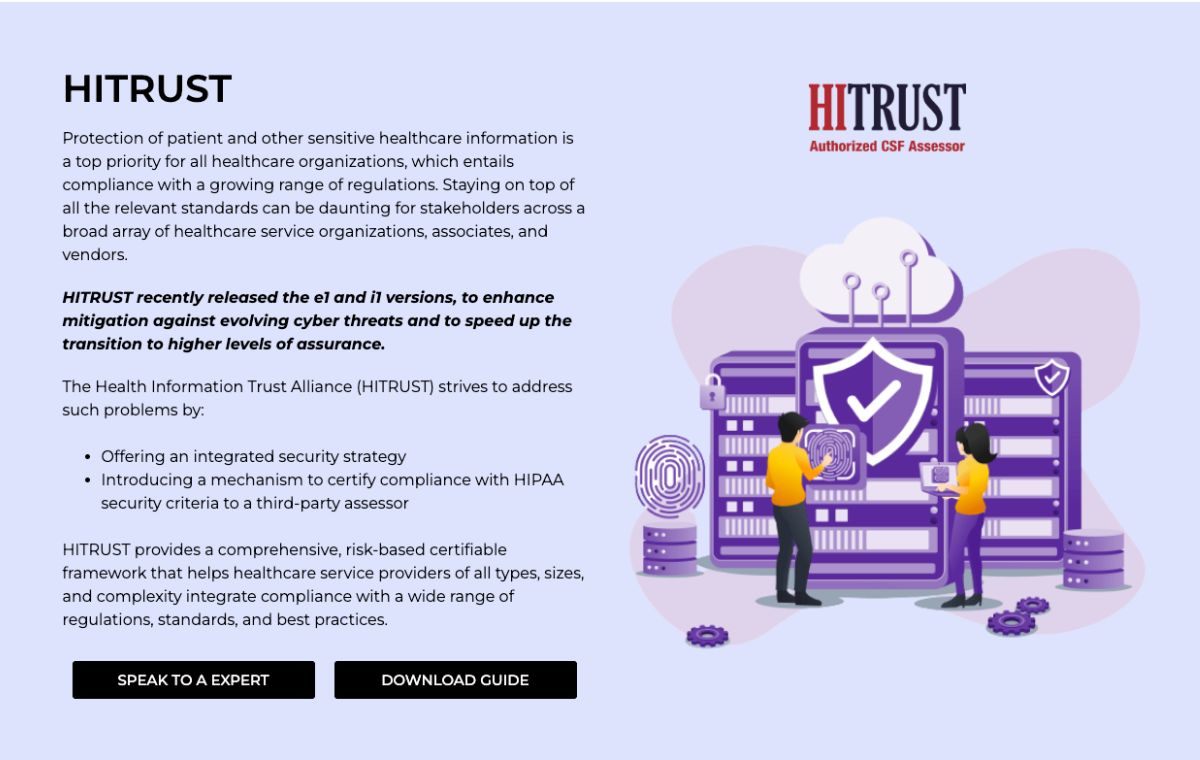In an age where patient data is as valuable as currency, healthcare organisations must safeguard sensitive information against ever-evolving threats. Athena health’s achievement of HITRUST Common Security Framework (CSF) Certification demonstrates a commitment to rigorous, comprehensive information-security controls. In this deep dive, we’ll explore:
- What the HITRUST CSF entails and why it matters
- How Athenahealth earned and maintains certification
- Key security domains validated under HITRUST
- Benefits for small and large medical practices
- A real-world example: How Sarah the biller leverages certified controls
- Practical steps your practice can take toward HITRUST-aligned security
- FAQs to answer your most pressing questions
What Is the HITRUST Common Security Framework (CSF)?
The HITRUST CSF is a certifiable, prescriptive framework that harmonizes multiple standards HIPAA, NIST, ISO, PCI-DSS, and more into a comprehensive set of controls for protecting sensitive data. Developed by the Health Information Trust Alliance (HITRUST), the CSF offers:
- Scalability: Tailored to organizations of all sizes and risk profiles.
- Certifiability: A validated certification process conducted by HITRUST-approved assessors.
- Comprehensiveness: Over 400 controls across 19 domains, covering technical, administrative, and physical safeguards.
By aligning with HITRUST CSF, healthcare vendors like Athenahealth demonstrate that their security posture meets or exceeds industry best practices giving practices confidence when they entrust patient data to third-party platforms.
Why HITRUST CSF Matters for Medical Practices
Small practices and large health systems alike face similar challenges:
- Regulatory Pressure: HIPAA audits and OCR enforcement actions are on the rise.
- Patient Expectations: Consumers expect their data to be protected as stringently as their financial information.
- Cyber Threats: Ransomware, phishing, and insider threats target healthcare at alarming rates.
A HITRUST CSF-certified vendor provides:
- Reduced Risk: Third-party assurance that critical controls are in place.
- Streamlined Compliance: Simplified HIPAA audits by mapping HITRUST controls to regulatory requirements.
- Competitive Advantage: Marketing differentiation Dr. Patel’s cardiology clinic can confidently market secure patient portals.
Linking to a HITRUST CSF-certified RCM or EHR solution such as AthenaOne reinforces your practice’s own compliance posture. For more on choosing software with robust security, see our guide to Medical Billing Software Features.
Athenahealth’s Journey to HITRUST CSF Certification
Athenahealth pursued HITRUST CSF Certification to validate its security program against the most demanding standards. The process involved:
- Gap Analysis: Athenahealth’s security team mapped existing policies and controls to the HITRUST CSF requirements.
- Remediation: Identified gaps were addressed via updated policies, technical enhancements (encryption, logging), and staff training.
- External Assessment: A HITRUST-approved assessor conducted a rigorous review of policies, procedures, system configurations, and evidence artifacts.
- Certification & Monitoring: After certification, Athenahealth implemented continuous monitoring to ensure ongoing compliance and rapid response to emerging risks.
By completing these steps, Athenahealth validated controls across all 19 HITRUST domains, earning its place among the industry’s most secure cloud-based healthcare platforms.
Key Security Domains Validated Under HITRUST CSF
HITRUST CSF groups its 400+ controls into 19 domains. Here are the critical areas that Athenahealth demonstrates through certification:
1. Information Protection Program
Defines the governance, risk management, and compliance framework. Athenahealth’s executive-level oversight ensures security remains a board-level topic.
2. Access Control
Enforces least-privilege access, multi-factor authentication (MFA), and role-based permissions—so only authorized users view patient records.
3. Endpoint Protection
Ensures devices (workstations, servers, mobile) are hardened, patched, and monitored for malware or unauthorized changes.
4. Network Security
Implements firewalls, intrusion detection/prevention systems (IDS/IPS), and segmentation to isolate sensitive data flows.
5. Data Encryption
Mandates encryption of data both at rest and in transit using FIPS-validated cryptographic modules.
6. Physical & Environmental Security
Guards data centers with biometric access controls, CCTV monitoring, and environmental controls (fire suppression, climate monitoring).
7. Incident Management
Maintains documented procedures for detecting, responding to, and recovering from security incidents—critical for rapid ransomware containment.
8. Vendor Management
Assesses third-party risks through standardized questionnaires, contractual security requirements, and periodic reassessments.
9. Security Awareness & Training
Requires annual training for all employees, with phishing simulations and role-based security modules.
These domains are only a portion of the HITRUST CSF, but they highlight the breadth of Athenahealth’s certified controls.
Benefits for Your Practice
When you choose a HITRUST CSF-certified vendor like Athenahealth:
- Confidence in Security: Sarah the biller can rest assured that sensitive patient information is encrypted, access-controlled, and monitored 24/7.
- Simplified Audits: Dr. Patel’s clinic references Athenahealth’s HITRUST certification in its HIPAA audit report, reducing time spent gathering third-party documentation.
- Reduced Operational Risk: Automated monitoring and incident-response procedures at the vendor ensure faster detection and remediation of threats minimising downtime and data loss.
- Patient Trust: Publicizing your use of a HITRUST-certified solution can boost patient confidence, leading to higher portal adoption and engagement rates.
For practices processing claims through athenaCollector or charting in athenaClinicals, these benefits translate into smoother operations and stronger regulatory standing.
Real-World Example: Sarah the Biller’s Experience
Background: Sarah manages billing and AR for Maple Grove Family Practice (three providers, 2,500 claims per month). Before switching to AthenaOne, she faced:
- Frequent eligibility errors due to outdated payer data.
- Manual attempts to verify security posture with each vendor.
- Lengthy HIPAA audit preparation to collect vendor controls evidence.
After Adoption of Athenahealth’s HITRUST CSF-Certified Platform:
- Faster Onboarding: Athenahealth provided an audit package with HITRUST assessment summaries, significantly reducing Sarah’s prep time.
- Improved Security Posture: With live monitoring and access logs, Sarah quickly verified that only authorized staff accessed patient charts—eliminating audit flag concerns.
- Operational Efficiency: Integration of secure APIs for claims transmission cut down on manual exports, encrypted transfers, and staff overhead.
- Peace of Mind: In the event of a suspected phishing email, Athenahealth’s incident-response team coordinated with Sarah to quarantine affected accounts within minutes.
This real-world scenario underscores how HITRUST certification delivers tangible, day-to-day advantages for billing professionals.
Practical Steps to Align Your Practice with HITRUST-Level Security
Even if your practice isn’t aiming for full HITRUST certification, you can adopt best practices inspired by the CSF:
- Establish Governance: Form a security committee or assign a privacy officer to oversee policies and risk assessments.
- Implement MFA: Require multi-factor authentication for all staff accessing EHR and billing systems.
- Encrypt Everywhere: Ensure laptops, desktops, and backups use full-disk encryption; mandate TLS for all web-based tools.
- Train Regularly: Conduct annual security awareness training and quarterly phishing drills.
- Document & Review: Maintain an incident-response plan, test it annually, and document any incidents with lessons learned.
- Vendor Assessments: Use standardized questionnaires (e.g., the HITRUST Shared Responsibility Matrix) to evaluate third-party security.
By adopting these controls, your practice moves closer to the robust assurance level that HITRUST CSF provides.
Frequently Asked Questions
What does HITRUST CSF certification guarantee?
HITRUST CSF certification guarantees that an organization’s security program meets or exceeds a comprehensive set of controls mapped to multiple standards (HIPAA, NIST, ISO), verified by an independent assessor.How often must Athenahealth renew its certification?
HITRUST CSF certification is valid for one year. Athenahealth undergoes annual reassessment and continuous monitoring to maintain its certified status.Can small practices get HITRUST certified?
Yes—HITRUST CSF is scalable. Smaller organizations can target a subset of controls based on risk and size, following the HITRUST MyCSF assessment tool.Where can I verify Athenahealth’s HITRUST status?
Visit the official HITRUST assessor portal or request the Athenahealth HITRUST Certificate of Registration from your Athenahealth representative.Conclusion
Athenahealth’s HITRUST CSF Certification represents a gold standard in healthcare information security. By validating over 400 controls across technical, administrative, and physical domains, Athenahealth proves its commitment to protecting patient data and supporting practice compliance. Whether you’re Sarah the biller aiming to streamline audit preparation or Dr. Patel seeking to build patient trust, leveraging a HITRUST-certified vendor delivers measurable benefits: reduced risk, simplified compliance, and enhanced operational efficiency.
Adopting even a subset of HITRUST CSF’s best practices—governance, MFA, encryption, training, and vendor assessments—can elevate your practice’s security posture. For more on selecting secure medical billing and EHR solutions, explore our Medical Billing Software Features pillar guide.








